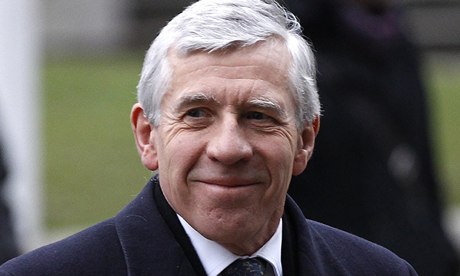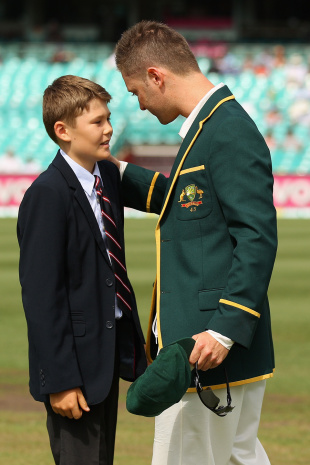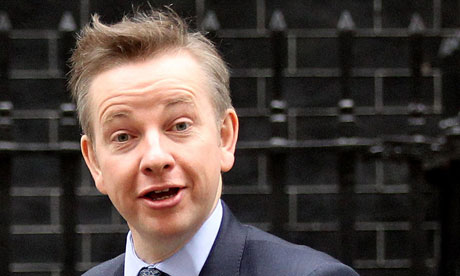Jack Straw's admission of guilt over deciding to allow economic migration in 2004 is disingenuous, and sidesteps the real mistakes they made, and the problems we still have as a result

Jack Straw's mea culpa over Labour's 2004 immigration policy is disingenuous, writes Deborah Orr. Photograph: Stefan Wermuth/Reuters
Jack Straw has declared that Labour's decision to allow EU migrants from Poland and Hungary to work in Britain from 2004 was a "well-intentioned policy we messed up" and a "spectacular mistake". It's not quite an apology, but at least it's a declaration of fallibility. Straw says that inaccurate forecasts from the Home Office, suggesting far fewer people would come to the UK than id, were to blame. So it's not actually Labour's fallibility he's admitting to, really. One can understand why. If Labour started issuing mea culpas, it's hard to see where they would end.
In truth, the "spectacular mistake" of 2004 was not due to a set of duff Home Office figures, and Straw is being disingenuous in saying that it was. It wasn't about the UK's great enthusiasm for the EU either. Countries far more committed to Europe than Britain were more cautious about lifting transitional restrictions on new members. In truth, the decision fitted with Labour's general policy, which was to be enthusiastic about issuing work permits whenever possible. Labour wanted Britain to attract economic migrants. Partly, this was because the larger a working population is, the greater the economic activity, and the more revenue there is to look after those not working – of whom there was a burgeoning number in the UK at that time. But the policy was attractive to Labour for other reasons, too, some of which no Labour government could admit to.
Most glaring was Labour's fear of a resurgence of union power. They didn't want people banding together to insist on higher pay and better conditions. A steady supply of people for whom just working in Britain offered higher pay and better conditions than they would otherwise expect served to reduce cohesion in the workforce, making common purpose harder to achieve. It's easy to see why this was not a perceived benefit of immigration that Labour was keen to advertise, or even explicitly acknowledge within the party.
And anyway, there were further difficult-to-acknowledge complications. At that time, a lot of people in Britain were genuinely unemployable, the effects of the speedy economic restructuring of the 1980s and 1990s having been vastly underestimated by the previous government. Even when new jobs were created, it wasn't easy to pull families and communities that had been thrown on the economic scrapheap off it again.
Norman Tebbit famously exhorted people in areas of high unemployment to get on their bikes and look for work. Economic migrants are, by self-selection, people in a fit state to do so. A migrant workforce is keener, more flexible. But it's hard to inform your electorate of this without sounding as oblivious as Tebbit was to the hopelessness and paralysis that flourishes in ravaged communities. In short, Labour couldn't explain the problems caused by long-term unemployment without sounding as if they were indulging in victim-blame.
Also, Labour had bet the farm on being able to turn round public services systematically starved of investment for years (exacerbating the problems of long-term or inter-generational unemployment). So, in order quickly to recruit, for example, trained and experienced doctors and nurses, Labour went to developing countries to persuade qualified people that they should work in Britain. The awful effect on countries that had invested in training these people, only to have them go elsewhere to work, was a secondary concern. Once again, this is hardly a shining example of international socialism in action.
Nevertheless, economic migration was allowing Labour to do what Cameron, Osborne and their fellow neoliberals still say is impossible. Labour was growing the private sector (mainly in London) at the same time as it was growing the public sector (often outside London). This politically isolated the Conservatives very effectively for a long time, largely because the City, the Institute of Directors and the Confederation of British Industry, theoretically the people whose interests the Tories represented, were the great cheerleaders of Labour's policy on economic migration.
But yet again, Labour couldn't crow too much. "Better at being Tory than the Tories" was not a vote-winning slogan. Yet it was true. The City of London, its wants pandered to, was becoming the largest, most important financial centre in the world, even as the divide between rich and poor, north and south, haves and have-nots was widening. Britain had become so divided that consequences incredibly damaging to one group of people were fantastically advantageous to others. And anything that was advantageous to the wealthy was unchallengeable, as long as taxes were rolling in.
The most obvious of these polarising results is house prices. If you've got a house in London, you have somewhere to live that is also, by happy chance, making a good deal more money each year than the average salary, due only to its continued existence. Out-of-control inflation is generally not considered to be good economic news. Yet, the previous government, like this one, sees rising house prices as the goose that lays the golden eggs. How can they be so blind?
Rising house prices, and a lack of social housing, make London an impossible place even to park your bike, let alone wander off to get a job and a place to live. Only if a young British person's parents live in London, or have a place in London (and why wouldn't they, if they can afford it, London property being such an excellent investment?), does that person stand any chance of making a life in the capital. Of course, since many industries – thanks to lack of union power – now rely on internships for recruitment, getting a job sometimes entails a long period of working for free. So class and regional divisions are ramped up yet more. On it goes.
The most terrible consequence of Labour's political dishonesty is that it provides a foundation for yet more. By failing to admit the extent to which they did the bidding of the private sector – not just on regulation, but by allowing the City to dictate, say, immigration policy, then dressing it up as something more socially progressive – Labour, post-crash, had no defence against the Conservative argument that it was public spending that had caused the crash. Labour was proud of its record on public spending, far more proud than it was of sitting on its hands while house-price inflation ran riot, for example.
Public spending was something that Labour was prepared to admit to, so when the crash came, there Labour was, caught redhanded – except that the real blame lay with Labour's more stealthy policies, policies which, at that late stage, it was politically impossible either to start explaining or apologising for.
But this painful process of explaining and apologising should start in earnest. By bowing to the logic of the free market without explaining that economic migration is simply part of that, Labour has allowed rightwing political rhetoric to continue preaching the lie that global free markets and economic migration are separate issues. Due to Labour's own lies-by-omission, organisations such as the English Defence League and Ukip have been able to flourish. But more urgently, those lies-by-omission have allowed the Conservatives to maintain their own delusions about the efficiency and moral goodness of free markets.
If Jack Straw really thinks that allowing people from Poland and Hungary to work in Britain was a "spectacular mistake", I dread to imagine the level of hyperbole he would have to achieve in order to describe the magnitude of the many mistakes his government made, of which that one was just a tiny detail.



